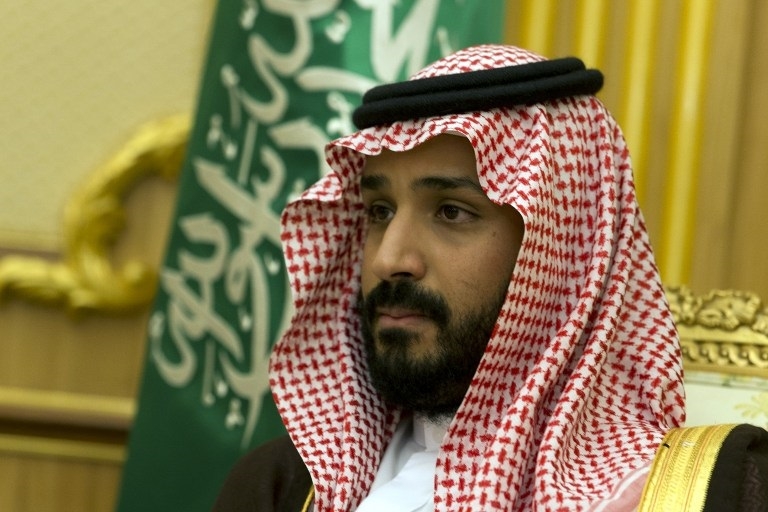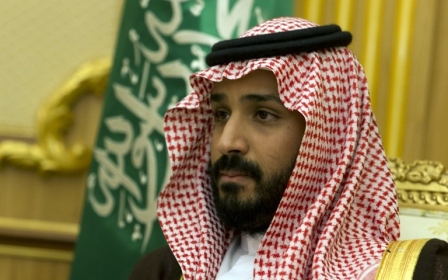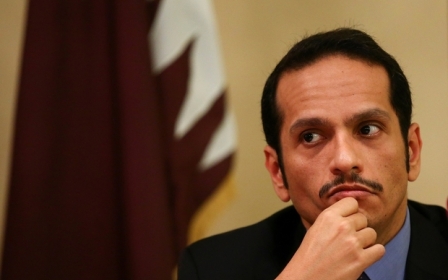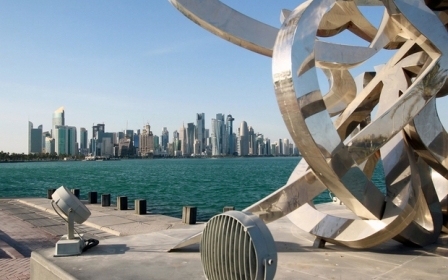Saudi vows new Islamic alliance 'will wipe terrorists from the earth'

Saudi Arabia's crown prince vowed to "pursue terrorists until they are wiped from the face of the earth" as officials from 40 Muslim countries gathered on Sunday in the first meeting of an Islamic counter-terrorism alliance.
"In past years, terrorism has been functioning in all of our countries... with no coordination" among national authorities, Prince Mohammed bin Salman, who is also the Saudi defence minister, said in his keynote address to the gathering in Riyadh. "This ends today, with this alliance."
The crown prince has said he would encourage a more moderate and tolerant version of Islam in the ultra-conservative kingdom.
Officials say the group will allow members to request or offer assistance to each other to fight militants. This may include military help, financial aid, equipment or security expertise. The group, which will have a permanent base in Riyadh, will also help combat terrorist financing and ideology.
The summit is the first meeting of defence ministers and other senior officials from the Islamic Military Counter Terrorism Coalition, which officially counts 41 countries and identifies as a "pan-Islamic unified front" against violent extremism.
The alliance was announced in 2015 under the auspices of Prince Mohammed, whose rapid ascent since his appointment as heir to the throne in June has shaken the political scene across the region.
Sunday's meeting comes as several military coalitions, including key Saudi ally the United States, battle to push the Islamic State (IS) group from its last remaining bastions in Iraq and Syria.
The alliance groups largely, although not exclusively, Sunni-majority or Sunni-ruled countries, including Egypt, the United Arab Emirates, Bahrain, Afghanistan, Uganda, Somalia, Mauritania, Lebanon, Libya, Yemen and Turkey.
Iran, Syria, Iraq are excluded
It excludes Saudi Arabia's arch-rival, Shia-dominated Iran, as well as Syria and Iraq, whose leaders have close ties to Tehran.
Sunday's meeting coincides with an escalation in tensions between Riyadh and Tehran, particularly over wars in Syria and Yemen and the political structure of multi-sectarian Lebanon.
Saudi Arabia accuses Iran of supporting armed groups across the Middle East, including Lebanon's Shia Hezbollah and Yemen's Houthi rebels.
"The pillar of this coalition is inclusion," said Saudi General Abdulelah al-Saleh, the alliance's acting secretary general, playing down the exclusion of the three countries. "Our common enemy is terrorism, not any religion, sect or race."
Saleh said military initiatives have been proposed to the group's ministerial council, but he did not elaborate. The group has yet to take any decisive action.
In spite of agreement on principles, members voiced different priorities at the meeting. Yemen's delegation said the focus should be Iran, al-Qaeda and IS, while Turkey called for "support from our friends" against Kurdish separatists.
Retired Pakistani general Raheel Sharif, who has been appointed commander-in-chief, also insisted that the coalition was not against any religion or state.
The alliance aims to "mobilise and coordinate the use of resources, facilitate the exchange of information and help member countries build their own counter-terrorism capacity," Sharif said.
While the alliance officially includes Qatar, which is the target of a six-month boycott led by Saudi Arabia, organisers in Riyadh said no Qatari officials were present at the meeting.
Qatar's flag was also absent.
Saudi Arabia, the UAE, Egypt and Bahrain abruptly cut diplomatic and trade ties with Qatar in June, accusing the emirate of being too close to Iran and supporting Islamist extremism.
Doha denies the allegations.
IS suspected in mosque attack
Egypt, which sent a military official and not its defence minister to Sunday's meeting, is reeling from a Friday attack on a mosque that killed more than 300 people during prayer time.
While IS has not claimed responsibility, Egyptian authorities say the organisation is the main suspect as the mosque is associated with followers of the mystical Sufi branch of Sunni Islam, whom IS has branded heretics.
The crown prince said Friday's "painful event" was a reminder of the "danger of terrorism and extremism".
"Beyond the killing of innocent people and the spread of hatred, terrorism and extremism distort the image of our religion," he said.
Since his sudden appointment as crown prince, bin Salman has moved to consolidate power, announcing crackdowns on both terrorism and corruption.
A corruption purge saw about 200 members of the Saudi elite including princes, ministers and business tycoons arrested or sacked earlier this month.
New MEE newsletter: Jerusalem Dispatch
Sign up to get the latest insights and analysis on Israel-Palestine, alongside Turkey Unpacked and other MEE newsletters
Middle East Eye delivers independent and unrivalled coverage and analysis of the Middle East, North Africa and beyond. To learn more about republishing this content and the associated fees, please fill out this form. More about MEE can be found here.




